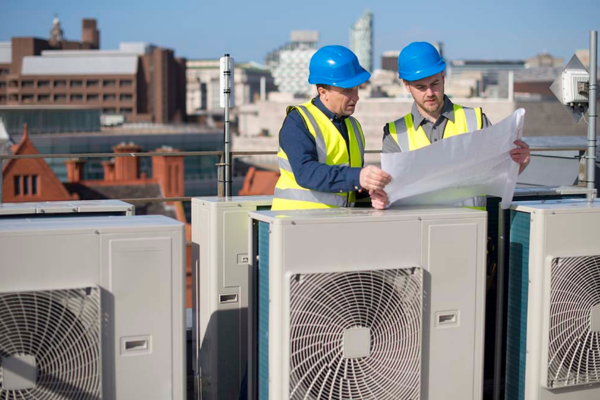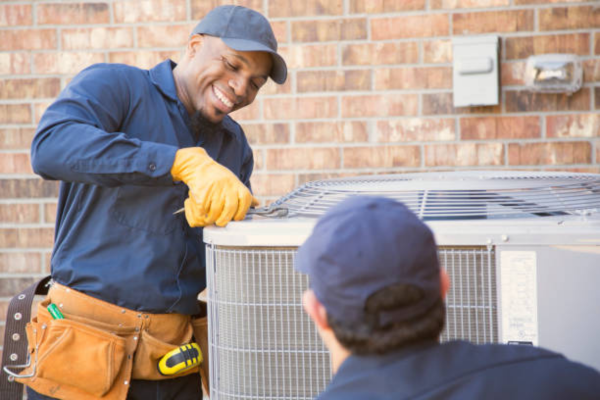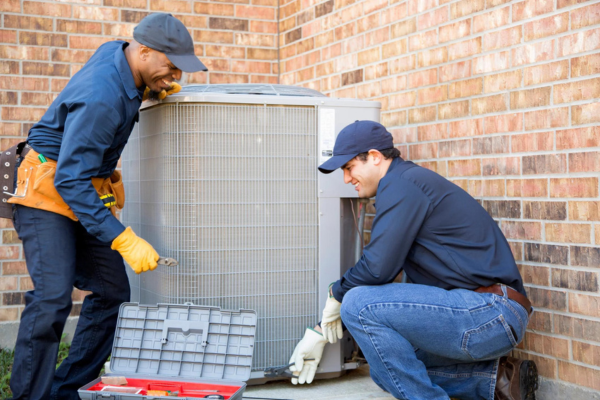Understanding the Challenges of HVAC Recruitment
Recruiting skilled professionals in the HVAC industry presents unique challenges, particularly during seasonal shifts. HVAC companies often struggle with maintaining a steady workforce to meet fluctuating demands throughout the year. As fall approaches, businesses face the challenge of preparing for increased workloads in the colder months while ensuring they have the right talent in place to handle the upcoming winter rush. The competition for skilled HVAC technicians intensifies, making HVAC recruitment a crucial focus for companies looking to stay ahead of the curve.

Importance of Fall HVAC Recruitment
Fall is an opportune time for HVAC recruitment, especially as companies prepare for the winter months, when the demand for heating services surges. With the busy summer season behind, businesses can focus on proactively building their teams for the colder months. By starting the hiring process in the fall, HVAC companies position themselves to avoid scrambling for talent when customer demand increases. Early recruitment ensures that businesses have well-trained, certified professionals ready to meet the heightened needs of winter, from furnace maintenance to emergency repairs.
Seasonal Hiring Trends in HVAC Recruitment
Why Fall is an Ideal Time for HVAC Recruitment
Fall offers a unique window of opportunity for HVAC companies to strengthen their workforce. After the summer rush for air conditioning services, the hiring environment tends to stabilize, allowing businesses to focus on future needs. Hiring HVAC professionals in the fall provides companies the time to adequately train new hires and acclimate them to their systems before the winter workload surge begins.
Preparing for Winter Workload Surges in HVAC
As the colder months approach, the demand for HVAC services increases significantly. Heating systems need to be inspected, maintained, and repaired, leading to a rise in service calls. Proactively hiring in the fall allows companies to prepare for this surge, ensuring they have the capacity to meet customer demand without delays or service interruptions. This foresight in HVAC recruitment helps businesses avoid last-minute staffing shortages and ensures they can handle emergency repairs efficiently.
Benefits of Proactive HVAC Recruitment Before Peak Seasons
Hiring HVAC professionals before peak seasons comes with numerous benefits. First, it allows companies to build a strong, skilled team before they are overwhelmed with service requests. This proactive approach not only improves operational efficiency but also enhances customer satisfaction by reducing wait times during busy periods. Additionally, HVAC recruitment during the fall helps businesses avoid the inflated costs of hiring during the winter rush when demand for technicians is highest, saving both time and resources in the long run.
The Importance of Competitive Pay
In today’s job market, offering competitive pay is a critical factor in successful HVAC recruitment. Skilled HVAC technicians have many opportunities, and companies that offer fair and competitive wages are more likely to attract top candidates. With the rising demand for HVAC professionals, businesses must stay current on wage trends to ensure they are offering salaries that meet or exceed industry standards. Competitive compensation not only helps attract talent but also reduces turnover, creating a more stable and efficient workforce.
Benefits That Secure the Best Candidates
Beyond salary, offering attractive benefits packages is essential for HVAC recruitment. Candidates are increasingly looking for comprehensive benefits that include health insurance, retirement plans, and opportunities for continued education. Health insurance is a key benefit that promotes employee well-being, while retirement plans like 401(k) options help workers plan for the future. Additionally, offering continued education or reimbursement for certification courses can be a major draw, as it shows a company’s commitment to the professional growth of its employees.
The Role of Certifications and Specialized Skills in HVAC Recruitment

Targeting Certified HVAC Professionals
When it comes to HVAC recruitment, certifications play a crucial role in identifying qualified candidates. HVAC professionals with certifications such as EPA (Environmental Protection Agency) and NATE (North American Technician Excellence) demonstrate a high level of competence and adherence to industry standards. These certifications are often required for technicians to handle refrigerants and other regulated materials, making them essential for businesses that want to ensure compliance with regulations and offer top-quality service.
Sourcing Specialized HVAC Talent
In addition to certifications, specialized skills are becoming increasingly important in HVAC recruitment. As the industry evolves with advancements in energy efficiency, smart HVAC systems, and sustainability, companies must seek out professionals with expertise in these areas. Technicians who are knowledgeable about energy-efficient solutions or experienced in installing and maintaining smart systems provide added value to HVAC businesses. Targeting candidates with these specialized skills allows companies to stay competitive in an industry that is rapidly embracing green and smart technologies.
Leveraging Technology and Job Boards for HVAC Recruitment
The Power of HVAC-Specific Job Boards
In the digital age, leveraging technology is key to successful HVAC recruitment. HVAC-specific job boards provide a targeted platform for finding qualified candidates who are actively seeking opportunities in the industry. These job boards allow companies to connect directly with technicians who have the right certifications and experience. By using platforms tailored to the HVAC industry, businesses can reduce the time and resources spent on the hiring process, ensuring they reach the right candidates quickly.
Using AI and Automation to Streamline HVAC Recruitment
Artificial intelligence (AI) and automation are transforming the recruitment landscape, making it easier for HVAC companies to source candidates and manage the hiring process. AI tools can help identify the best candidates by analyzing resumes for specific certifications, skills, and experience. Automation can streamline tasks such as resume screening and interview scheduling, freeing up time for HR teams to focus on other important aspects of the recruitment process. Leveraging these technologies allows HVAC companies to stay efficient and competitive in the search for top talent.
The Role of Employer Branding in HVAC Recruitment

In a competitive job market, building a strong employer brand is essential for HVAC recruitment. A company’s brand is more than just its services or products; it’s a reflection of the workplace culture, values, and growth opportunities that make it an attractive place to work. By showcasing these elements, HVAC companies can stand out from competitors and attract top-tier talent. Highlighting positive employee experiences, such as success stories and career advancements, can create a compelling image that resonates with job seekers in the HVAC industry.
Tips for Developing a Strong Employer Brand in HVAC Recruitment
To develop a reputation as an employer of choice, HVAC companies should focus on promoting the aspects that make their workplace unique and appealing. Here are a few tips to strengthen your brand for HVAC recruitment:
- Showcase your team’s collaboration, work-life balance, and commitment to safety and innovation. Sharing employee testimonials or behind-the-scenes content on social media can provide insight into your culture.
- Top HVAC professionals are looking for companies where they can grow. Highlight internal training programs, mentorship, and opportunities for career advancement to attract ambitious candidates.
- Sharing stories of how current employees have advanced within your company helps create an image of upward mobility and opportunity.
- HVAC job boards, forums, and online communities are great places to share your company’s values and benefits, helping build a positive reputation in front of the right audience.
The Importance of Training and Development in HVAC Recruitment
Retaining skilled HVAC professionals is just as important as attracting them. In fact, investing in ongoing training and development is a key factor in employee retention within HVAC recruitment. Offering professional development programs shows technicians that the company values their growth, which fosters a sense of loyalty. This approach not only helps employees improve their skills but also keeps them engaged and motivated, reducing turnover rates in the long term.
Creating Career Paths to Improve HVAC Talent Retention
Creating a clear career path within your HVAC company is a powerful retention tool. By outlining how technicians can progress through various roles, from entry-level positions to senior management, companies can help employees visualize their future within the organization. Here are some strategies for using career development to retain HVAC talent:
- Ensure your employees stay updated with the latest industry standards and technologies by offering opportunities for certifications and skill development.
- Pair less experienced technicians with senior employees to foster growth and collaboration. This promotes a learning environment and keeps technicians invested in their careers.
- Outline specific criteria for promotions, including technical skills, leadership abilities, and performance reviews, so employees know what steps to take to advance.
- Offering incentives, such as bonuses or pay increases for achieving certain certifications, motivates technicians to continuously improve their skills.
By creating a culture of growth and opportunity, HVAC companies can improve both recruitment and retention, ensuring long-term success in an increasingly competitive industry.
The Benefits of a Diverse Workforce in HVAC Recruitment
Diversity and inclusion are becoming increasingly important in HVAC recruitment. A diverse workforce brings varied perspectives, innovative ideas, and problem-solving approaches, all of which can improve a company’s performance. Inclusive hiring practices not only help HVAC companies reflect the communities they serve but also allow them to tap into a broader talent pool, ultimately leading to better customer service and operational success. By embracing diversity, companies can foster a more dynamic, creative, and adaptable workforce.
Attracting Underrepresented Groups in HVAC Recruitment
Historically, certain groups—such as women and veterans—have been underrepresented in the HVAC industry. However, focusing on inclusive hiring practices can help attract these candidates and diversify your team. Here are some strategies to achieve this:
- Create outreach initiatives that specifically speak to underrepresented groups, showcasing your commitment to diversity and inclusion.
- Collaborate with organizations that focus on women in trades or veteran transition programs to access a wider pool of qualified candidates.
- Providing mentorship opportunities for underrepresented employees helps create a supportive environment, encouraging retention and growth within the company.
- Emphasize how women, veterans, and other underrepresented groups can advance within your company, making your HVAC recruitment efforts more appealing to diverse candidates.
Streamlining the Interview Process for HVAC Recruitment
Evaluating Technical Skills and Problem-Solving Ability in HVAC Recruitment
When recruiting for HVAC roles, it’s essential to have an interview process that effectively assesses technical skills and problem-solving abilities. HVAC recruitment should focus on identifying candidates who not only possess the required certifications and experience but also demonstrate the ability to diagnose and fix problems quickly and efficiently. To evaluate these skills:
- Develop interview questions that test candidates’ knowledge of HVAC systems, including their ability to troubleshoot common issues.
- Present real-world HVAC scenarios and ask candidates to explain how they would approach and resolve the problem.
The Value of Practical Assessments in HVAC Recruitment
In addition to traditional interviews, practical assessments can play a key role in evaluating HVAC candidates. Hands-on tests and simulations provide insights into how a technician operates in real-world conditions, ensuring they have the practical experience needed for the job. Consider the following methods:
- Set up simulations of common HVAC tasks, such as repairing units or identifying system faults, to see how candidates handle actual work scenarios.
- Allow candidates to demonstrate their skills with equipment they’ll be using on the job, ensuring they have the technical abilities required for success.
The Impact of Industry Trends on HVAC Recruitment
How Green Energy and Smart Home Technology Influence HVAC Recruitment
The HVAC industry is constantly evolving, and recruitment strategies must adapt to keep pace with emerging trends. One of the most significant shifts in recent years is the growing demand for green energy solutions and smart home technologies. As homeowners and businesses seek to reduce energy consumption, HVAC technicians with knowledge of energy-efficient systems and sustainable practices are in high demand. Similarly, the rise of smart home technology has created a need for professionals skilled in installing and maintaining advanced HVAC systems that integrate with smart devices.
Adapting HVAC Recruitment to Regulatory Changes
The HVAC industry is subject to various regulatory changes, particularly around environmental and energy efficiency standards. These regulations affect both the types of systems being installed and the skills technicians need to stay compliant. HVAC companies must adapt their recruitment strategies to ensure they hire candidates who are knowledgeable about these evolving regulations and can apply best practices in their work. By prioritizing candidates with specialized knowledge of environmental standards, companies can stay competitive in the market.
Incorporating these trends into your HVAC recruitment strategy ensures your company is equipped to handle the future demands of the industry. By staying ahead of the curve, you can attract talent that helps your business grow and adapt to the changing landscape of HVAC technology and regulations.
Building Talent Pipelines Through Apprenticeships and Internships in HVAC Recruitment

One of the most effective ways for HVAC companies to develop a strong talent pipeline is by offering apprenticeships and internships. These programs provide entry-level technicians with hands-on experience while allowing companies to train future employees from the ground up. HVAC recruitment strategies that include apprenticeships or internships give businesses the opportunity to shape young professionals’ skills to meet their specific needs. By investing in these programs, HVAC companies can ensure a steady flow of trained and experienced talent for the long term.
The Long-Term Benefits of Training HVAC Professionals
Apprenticeships and internships not only provide immediate value to HVAC companies but also offer significant long-term benefits. By training young professionals, businesses can build loyalty and reduce turnover rates. Employees who begin their careers through an apprenticeship or internship are more likely to stay with the company because they feel invested in its success. Additionally, this approach allows businesses to groom future leaders, creating a pool of talent that can step into more advanced roles as the company grows.
Proactive HVAC recruitment is essential for companies to meet industry demands by offering competitive compensation, targeting candidates with specialized certifications, and leveraging trends like green energy and smart technology. Utilizing modern tools like AI, job boards, and apprenticeships ensures a sustainable workforce. If you’re looking to optimize your HVAC recruitment, GoToro can help streamline the process and connect you with top talent. Contact GoToro today to request a demo and discover how we can enhance your recruitment strategies.


